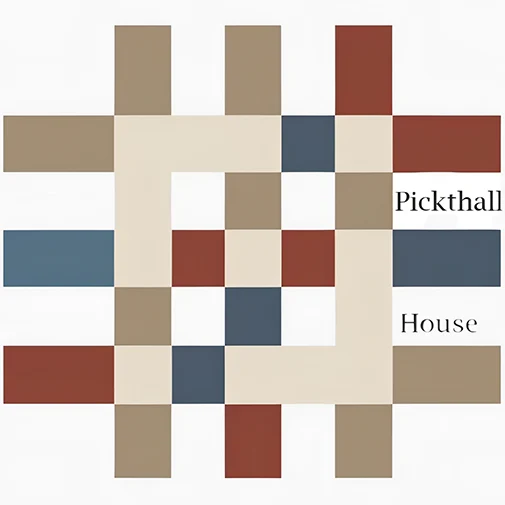Summary
Terrorism and security have not been foregrounded as leading issues in the lead-up to the up-coming election on July 4th. Nevertheless most of the leading parties’ manifestos mention it in some capacities, and in some corners of political discourse the language around terrorism continues to be evoked.
Pickthall House cautions against the government further regulating speech online in the name of counter-terrorism, a motion being driven towards in Labour’s new Manifesto. In addition it condemns the conflation of national security concerns with issues surrounding immigration, even while acknowledging the respective importance of both areas and the connections between them.
The Conservatives and Labour both promised tighter measures against terrorism in their manifestos, with the latter also granting counter-terror powers to its new ‘Border Security Command’ and promising further measures in the digital space. Reform UK employs terrorism in its rhetoric around immigration, while the Liberal Democrats advocate for more collaboration with the European Union for the purpose of tracking down terrorists and other criminals operating internationally.
The lightest touch on matters relating to terror would seem to be the Green Party, whose only substantive proposal in that domain is scrapping the Prevent programme. Prevent’s relationship to the Muslim community in particular has often been strained to say the least, and the suggestion appears in the manifesto shortly after an acknowledgement of the rise in Islamophobia in recent times.
Regulation in the Digital Sphere
All of the rest of the leading parties have directly or indirectly indicated a desire for further security measures in relation to terrorism. Both the Conservatives and the Labour Party have, in their manifestos, supported the introduction of ‘Martyn’s Law’, named in memory of Martyn Hett, a victim of the tragic Manchester Arena attack in 2017. The new law would require premises and venues to take additional steps in mitigating the risk of attacks before events.
The Conservatives aim to facilitate more collaboration between the National Crime Agency and Counter Terrorism Policing, and to hire an additional 8,000 police officers.
Labour takes a broader scope in addressing the issue, however, and promises to ‘update’ the rules around counterextremism, including in the online space. This is likely a nod in the direction of social media regulation, being the main site of online radicalisation in its various forms. A 2020 party consultation for Labour titled ‘Our Digital Future’ expressed concerns about the ‘Privatisation of Political Judgement’ in the hands of tech companies, and suggests that the government should take a more active role in this area. Though this report was concerned more with elections and the democratic process than with radicalisation, the tendency towards a more regulated and controlled online discourse is clear, and terrorism is just one of the causes leveraged in pushing this forward.
It is reasonable to be concerned about whether the incoming government will be a fairer arbiter of speech online, and Pickthall House advises that the public should be weary of giving Starmer’s party a blank cheque to censor social media in the name of securing fairer elections or of curbing terrorism.
Terrorism and Immigration
Reform UK, Nigel Farage’s party surprisingly makes no direct mention of terrorism or counter-terrorist measures in its Manifesto. Immigration is the keynote issue for Reform though, and concerns about terrorism swirl around this in their political discourse. In a recent campaign rally in Kent, Nigel Farage invoked the word “invasion”, and considered it a fair description of mass migration into Britain. He further stated that many of the young men arriving in the country come from countries “that are known to have terrorism.”
Terrorism then is not itself a foregrounded issue for Reform UK, but it still evidently informs party rhetoric to some degree.
It should be noted that Labour has also connected the issues of illegal immigration and terrorism, seeing them as in some sense analogous activities. This is evidenced by the manifesto pledge to form a new “Border Security Command”, which will be given “counter-terror powers to deal with the criminal boat gangs.” Starmer’s granting of counter-terror powers to the new command force is in part a way of signalling that he is taking the migration crisis seriously, by treating it with the same gravitas as threats of terrorism. Notably, in Labour’s Manifesto, national defence is the first policy area listed after Labour’s five key mission statements.
This placement, of course, is not alphabetically dictated nor is it likely to be accidental, but it is meant to restore trust in Labour’s commitment to national security and stability, a trust which has arguably been eroded in the case of the consecutive Conservative governments since David Cameron’s.
The issue of terrorism has prompted several parties towards greater collaboration with Europe as well. The Liberal Democrats seek to restore access for UK police to EU-wide data sharing in order to track down international criminals, including terrorists. Labour favours a similar reintegration with the European Union for the purpose of policing the channel.
In this election terrorism seems rarely to have been taken as a single, disconnected issue on the part of any of the major parties. It is being presented as a facet of other, more topical political issues, especially immigration. Pickthall House finds concerning the leveraging of terrorism as a support mechanism for other policies, and warns against a clumsy elision of areas which, while connected, ought to be treated as the distinct issues that they are.


